Last updated: December 19, 2022
Article
Valerie Fernandes
Valerie Fernandes was raised in Brooklyn, New York, and was an only child. She felt that made her “more disciplined because you have two people watching what you do and no siblings to blame things on.” After graduating from high school, Fernandes attended St. John’s University, earning a BA in psychology.

After graduation, Fernandes began working for the Social Security Administration in 1974 as a customer service representative. In 1976 she saw an advertisement in a civil service newspaper listing opportunities to work outdoors “with little supervision or paperwork” with the US Park Police (USPP), a unit of the National Park Service (NPS) operating in Washington, DC, New York, and San Francisco. In a 1985 oral history she noted that the job was of immediate interest to her after two years of working behind a desk. “I guess being outdoors appealed to me. You never knew what was going to happen. It was exciting and different.” She had never heard of USPP but went to Washington, DC for an interview and written examination. Upon arrival she realized they thought she was Hispanic given her surname, but she is of Italian descent.
Fernandes liked to challenge herself both professionally and personally. In 1976 she earned her pilot license. Her reason for doing it was because as I child she was told she couldn't. When Fernandes was about six-years-old, she wrote a letter to NASA asking about becoming an astronaut. Their response stated that women were not allowed in the program. She ripped up that letter and wrote to Eastern Airlines. She was disappointed to receive a similar response but became even more determined to fly one day. She later noted, “I think it helps you be more independent and self-reliant, when you know you accomplish something like that. You can do it on your own.”
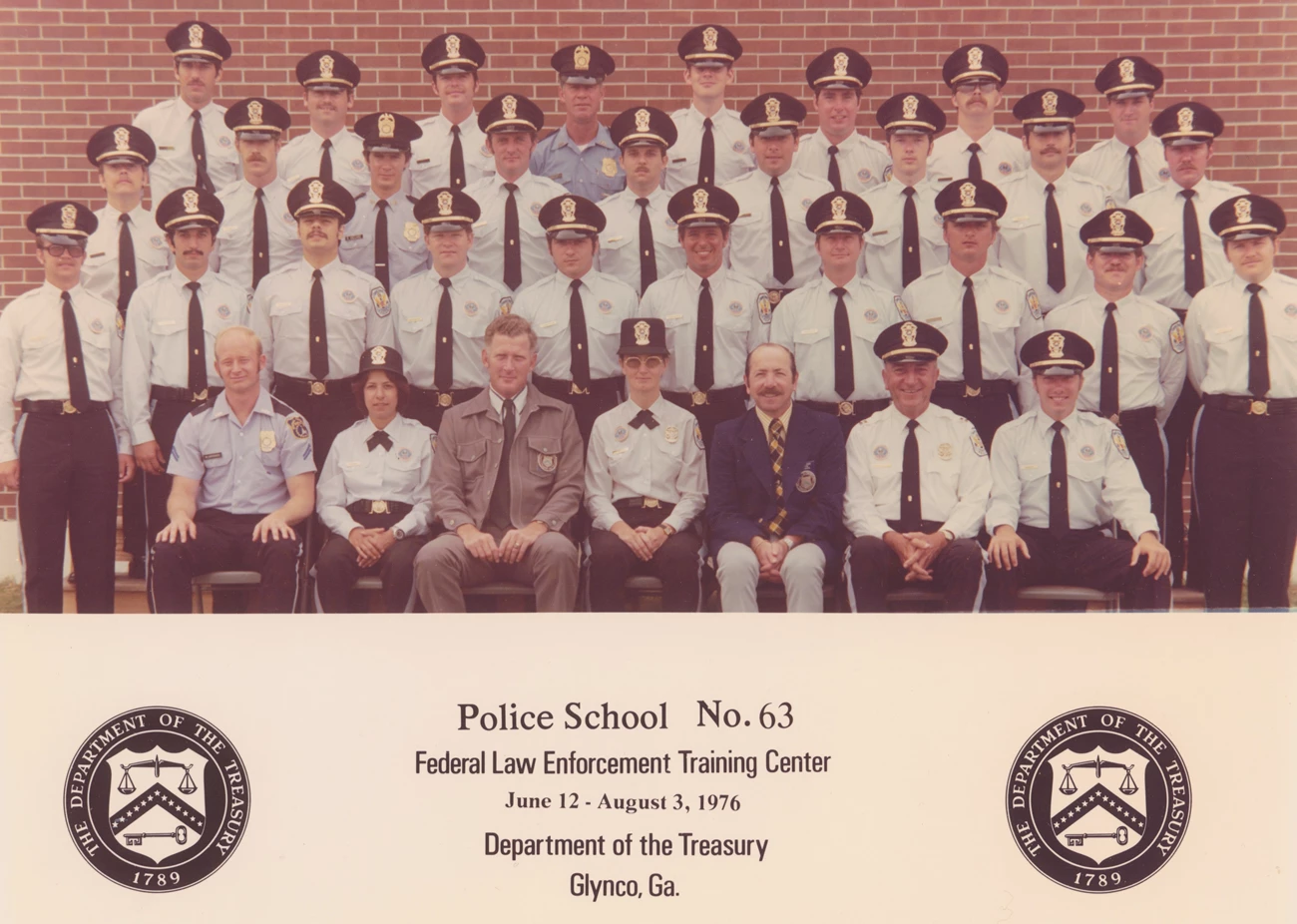
In May 1976 Fernandes joined USPP as a private. After graduating from the Federal Law Enforcement Training Center (FLETC), she was assigned to the Central District in Washington, DC where she conducted patrols around the monuments. About four months later there was an opening in the New York Field Office, and Fernandes decided to return to her hometown. She spent the next nine and a half years working at Gateway National Recreation Area.
At Gateway, Fernandes was one of three women on a team of 50. Being a woman on a workforce of mostly men, she often performed jobs that her male counterparts could not, like investigating complaints in female bathrooms and responding to women who were victims of sexual assault. In her oral history she commented on the fact that people in Washington, DC, “don’t seem to stare as much at our uniforms as they did in New York, because we were kind of an oddity in New York in 1976.”
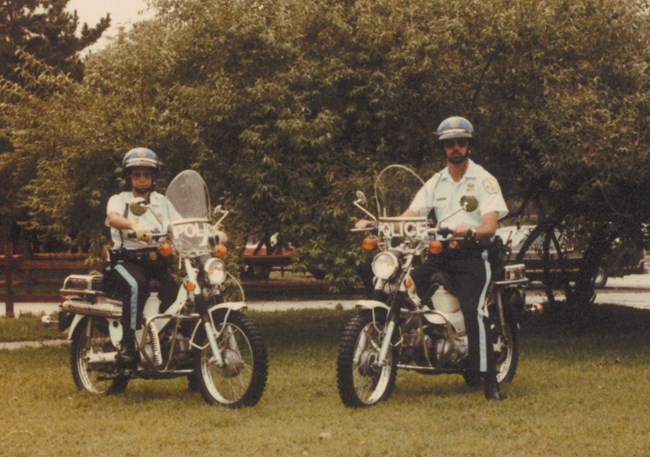
At Gateway, Fernandes received specialized training in police procedures and tasks such as scooter patrol, drug enforcement, and hostage negotiation. She also worked undercover assignments where she felt being a woman gave her an advantage. “I was able to sit on the beach and watch people do things right in front of me, mainly because they didn’t think of me as a threat. A male officer with short hair, carrying a bag, might raise suspicions—people might’ve thought ‘Well this guy might be a police officer, we better be careful.’ They almost never expect me to be one.” She sometimes worked undercover on a nude beach in the area but was quick to point out that she did so wearing a bathing suit, even though it made her rather conspicuous.
In February 1980 Fernandes and fellow officer Priscilla “Pepper” Karansky from the San Francisco Field Office became the first women horse-mounted officers since the USPP began equestrian patrols in 1933. The eight-week course at Rock Creek Park consisted of stable duty, animal care, classroom training, and riding experience, as well as using police procedures of interrogation, arrest, and firearms from a mounted position. Both women earned awards during the class; Karansky won the Equitation Award and Fernandes the Scholastic Achievement Award.
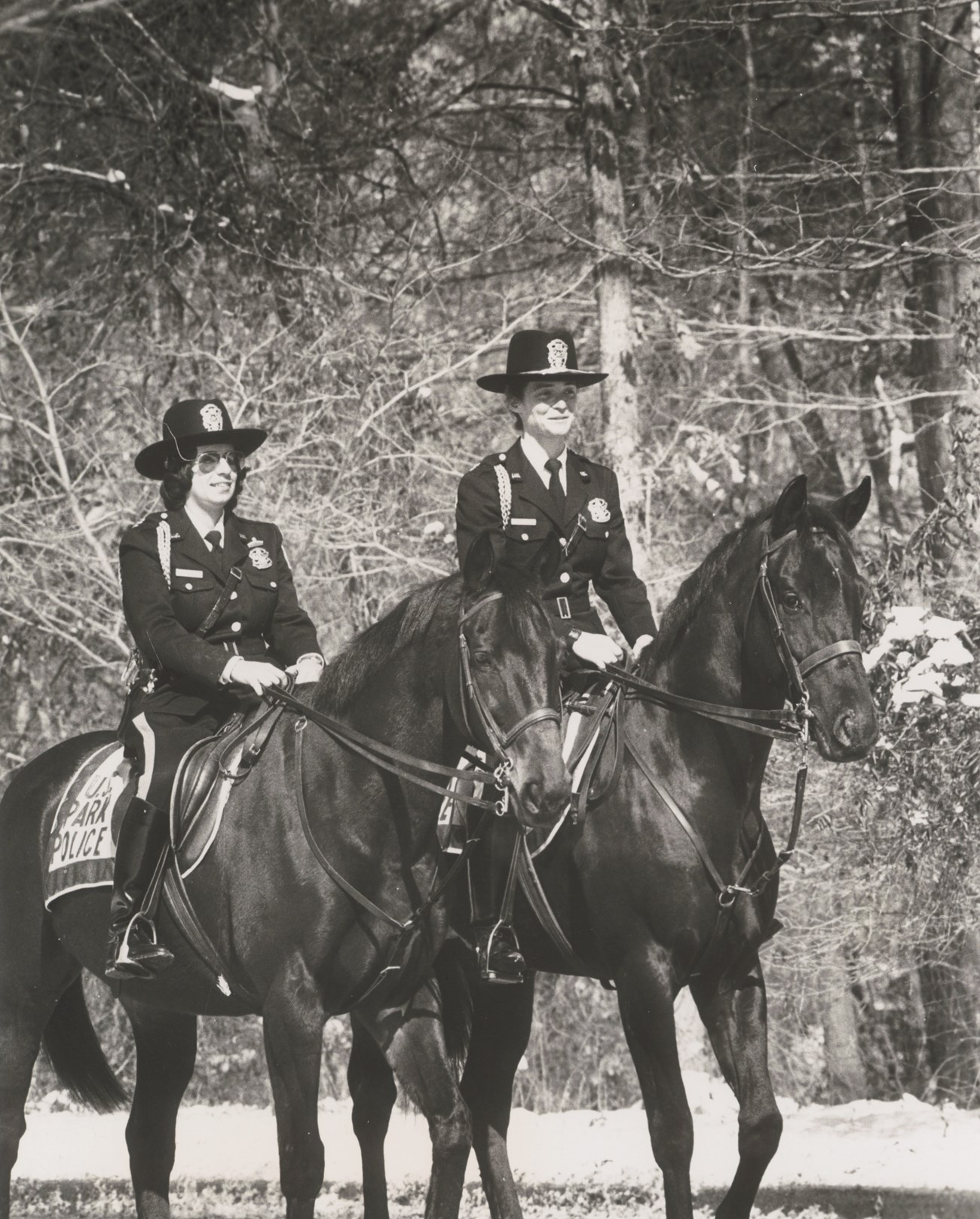
Fernandes recalled, “People view a horse-mounted officer, male or female, as a curiosity. It’s like having a 1,200-pound partner with you on patrol.” She also spoke to the advantages of mounted patrols and their public relations value. “You have constant contact with people, most of whom are interested primarily in the horse." The visibility of an officer on the horse serves as a crime deterrent as well. “Since the animal is at a higher elevation, your field of vision is increased, and this is a plus in law enforcement. In crowd control situations, a horse does the work equivalent to that of several officers."

In 1980 the USPP force was more than 95 percent male. When asked to comment on women as assets to the USPP, Fernandes responded with an example of her personal experience. “I think maybe that’s the thing I do differently. I approach people and talk with them to gain compliance. If you can talk somebody into doing something that you want them to do without a big hassle, that’s the best way to go. And most men still won’t hit women. You can use that to your advantage too.”
Fernandes was promoted to sergeant in 1983, becoming only the fourth woman to achieve that rank. Two years later she returned to the Washington Field Office as a lieutenant and field commander, ready for new challenges. The promotion made her the first woman to earn the rank of lieutenant in the USPP.
In 1991 she was nominated for an outstanding manager award by the Interagency Committee on Women in Federal Law Enforcement. In 1992 she was the first woman promoted to captain.
In her oral history she reflected on her duty as a park police officer. “If I do my job properly, people will be able to enjoy the parks without having to worry about crime affecting them. I hoped to help them enjoy the parks and alleviate any problems endangering their safety.”
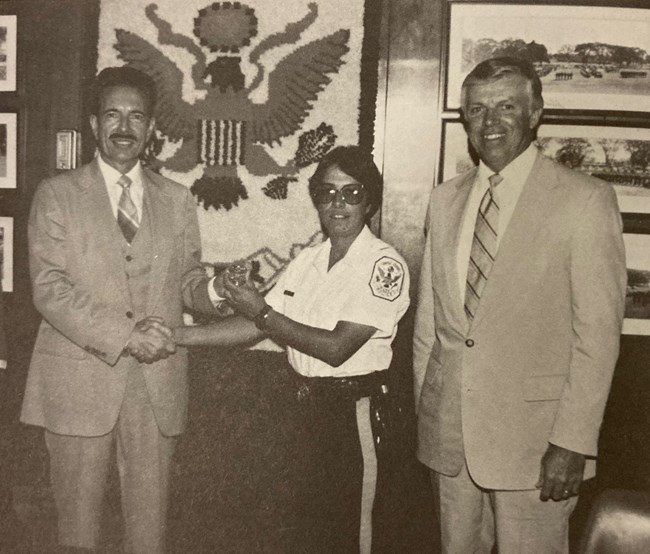
Fernandes had a wide range of assignments throughout her career. She attended the FBI National Academy in Quantico, Virginia. She was detailed to the International Association of Chiefs of Police in Alexandria, Virginia as a visiting fellow. She served as chairperson of several promotion boards for the ranks of sergeant and lieutenant. She initiated bicycle patrols in the parks, selecting uniforms and equipment, after organizing training from the George Mason University Police Department. Fernandes assisted with the hostage negotiation program as well. She also recalled, "I was very interested in Crime Prevention Thru Environmental Design (CPTED) while working on my master's of Urban and Environmental Planning degree at the University of Virginia. I was able to use this interest when making recommendations to the NPS to reduce crime in some unsafe areas."
Fernandes retired from USPP in 2000 when a former Maryland Police Department officer she trained with during hostage negotiation exercises offered her a job in the Bureau of Alcohol, Tobacco, Firearms and Explosives's (ATF) Special Operations Training Division. She left ATF in 2004 after almost 30 years of government service. Two years later she joined the US Coast Guard Auxiliary in St. Pete Beach, Florida. As of September 2022, she is a member of their Division Seven boat crew.
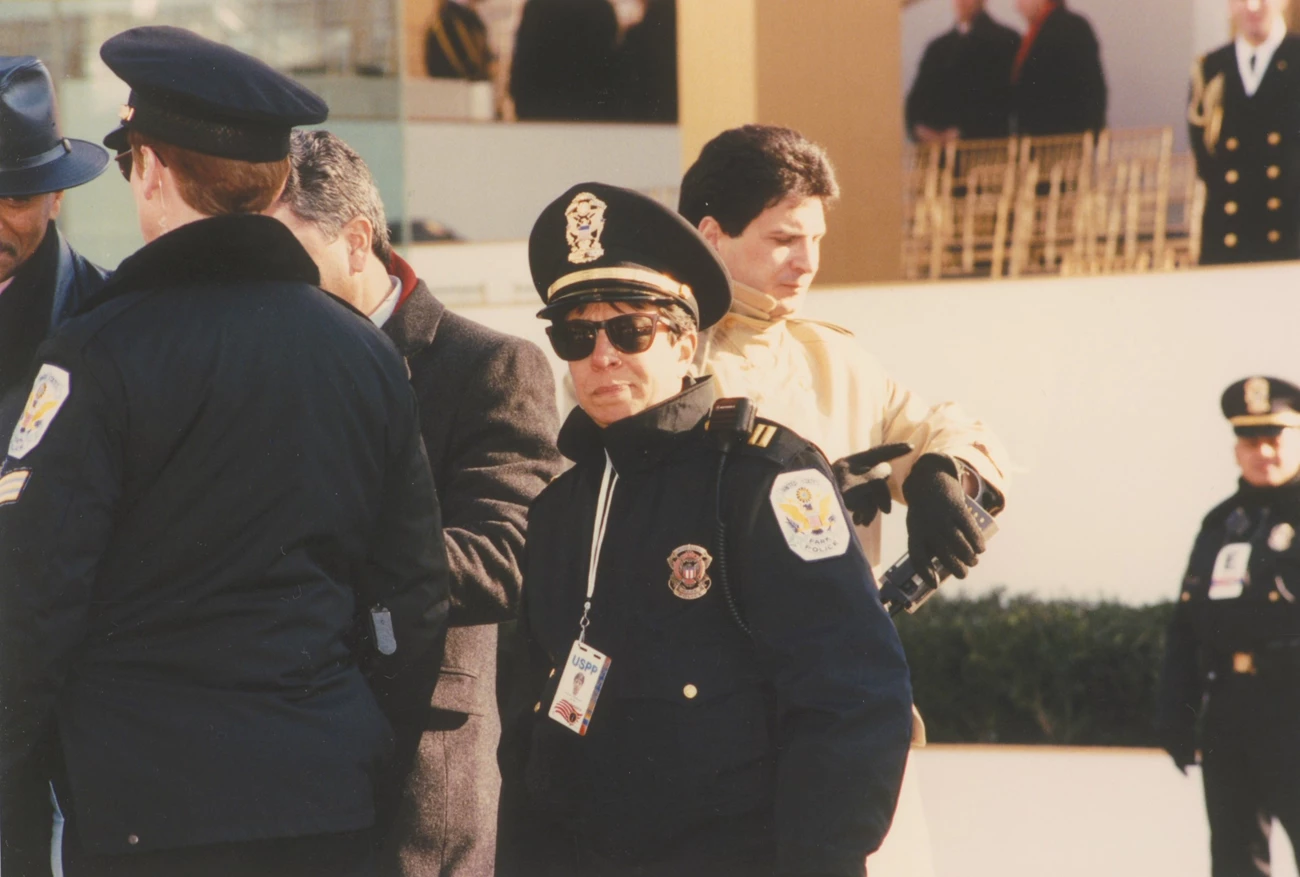
Sources:
Fernandes, Valerie. (1986, February 8). Interview with Polly Kaufman. Polly Kaufman Collection. NPS History Collection, Harpers Ferry Center.
Fernandes, Valerie (2022, August 20). Pers. comm. with Nancy Russell, archivist at the NPS History Collection, Harpers Ferry Center, WV.
Fernandes, Valerie (2022, September 9). Pers. comm. with Nancy Russell, archivist at the NPS History Collection, Harpers Ferry Center, WV.
Iraq Airstrikes Protested in D.C. (1998, December 29). AP News.
Kaufman, Polly Welts (2006). National Parks and the Woman’s Voice: A History. University of New Mexico Press.
National Park Service. (1985, December). "Eight USPP Officers promoted to lieutenant." Courier: The National Park Service Newsletter, 30 (11-12), p. 14.
National Park Service. (1989, April). "First women horsemounted officers graduated." Courier: The National Park Service Newsletter, 3 (5), p. 10.“
WIFLE Committee Presents Annual Awards.” (1991). Retrieved from at https://wifle.org/resources/1991-ICWIFLE/pdf/13-14.pdf on March 16, 2022.
Explore More!
To learn more about Women and the NPS Uniform, visit Dressing the Part: A Portfolio of Women's History in the NPS.
This research was made possible in part by a grant from the National Park Foundation.
